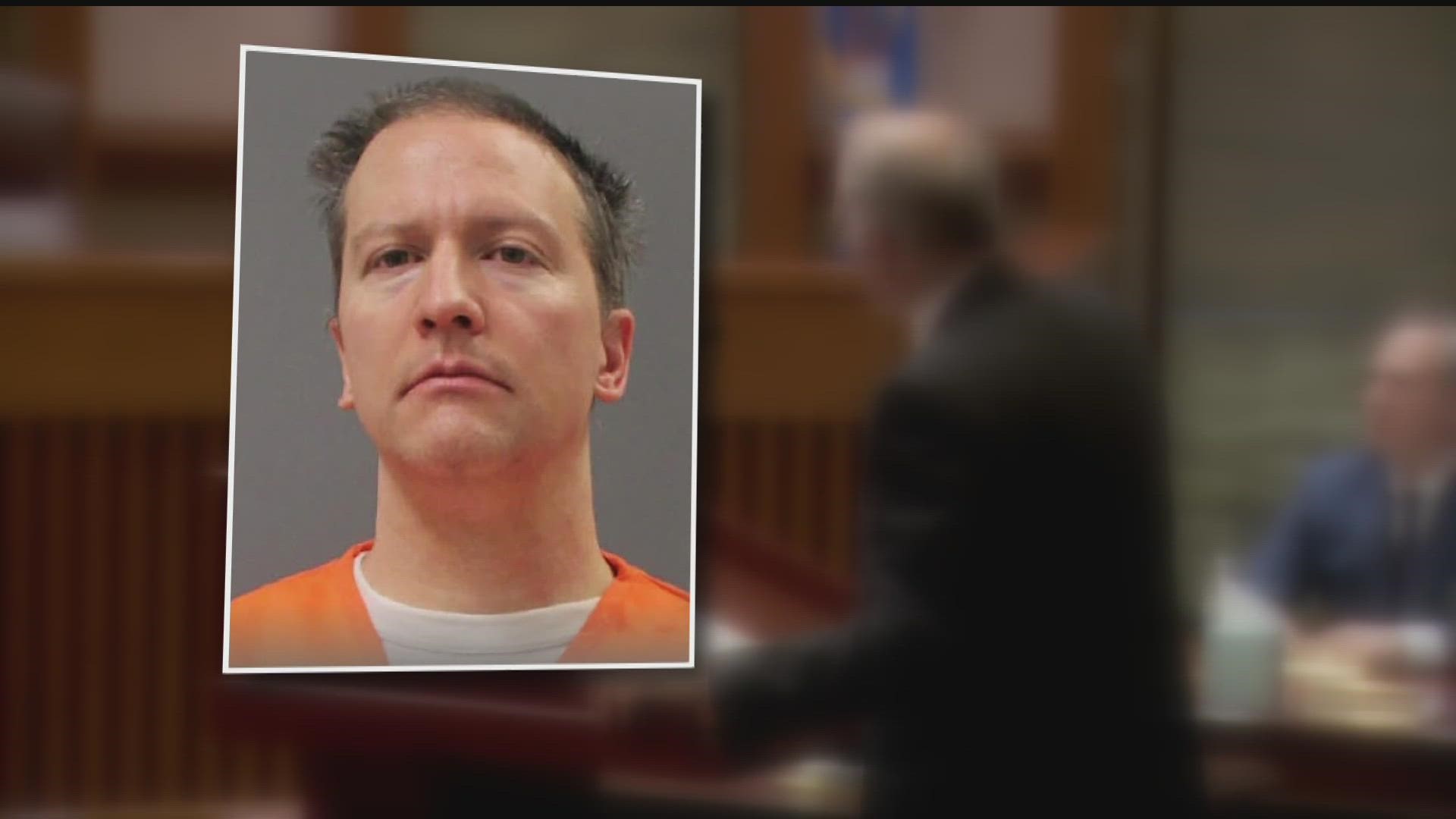SAINT PAUL, Minn. — A Minnesota Court of Appeals has 90 days to issue a decision after an attorney for Derek Chauvin asked a judge court to throw out the former Minneapolis police officer's convictions in the murder of George Floyd, arguing that numerous legal and procedural errors deprived him of a fair trial.
Wednesday morning, prosecutors and Chauvin's defense team appeared in court before Judge Peter Reyes, who heard oral arguments after each side filed extensive briefs on the issue.
Floyd died on May 25, 2020, after Chauvin, who is white, pinned the Black man to the ground with his knee on his neck for 9 1/2 minutes. A bystander video captured Floyd's fading cries of “I can't breathe.” Floyd’s death touched off protests around the world and forced a painful national reckoning with police brutality and racism.
Hennepin County Judge Peter Cahill sentenced Chauvin to 22 1/2 years after jurors found him guilty of second-degree murder, third-degree murder and second-degree manslaughter. Chauvin later pleaded guilty to a federal civil rights charge and was sentenced to 21 years in federal prison, which he is now serving in Arizona concurrent with his state sentence.
While Chauvin waived his right to appeal under his federal plea deal, he continued to pursue the appeal of his murder convictions in state court. Even if he wins his appeal, his federal sentence will keep him in prison longer than his state sentence likely would because he would qualify for parole earlier in the state system. But a successful appeal could set a precedent for future cases involving police officers.
Chauvin's attorney for the appeal is William Mohrman, who often pursues conservative causes including challenges to President Joe Biden's election victory and to COVID-19 vaccine mandates.
Mohrman argued in his brief to the Minnesota Court of Appeals that the pretrial publicity was more extensive that any other trial in Minnesota history, and that the judge should have moved the trial elsewhere and sequestered the jury for the duration. Mohrman wrote that the publicity, combined with the riots, the city's $27 million settlement with Floyd's family announced during jury selection, the unrest sparked by the killing of Daunte Wright by officer Kim Potter in Brooklyn Center and the unprecedented courthouse security were just some of the factors prejudicing Chauvin's chance of a fair trial.
He also argued that Cahill improperly excluded evidence that could have been favorable to Chauvin, and accused prosecutors of misconduct.
According to KARE 11 reporter Lou Raguse, who followed the hearing Wednesday morning, Judge Peter Reyes appeared "highly skeptical" of Mohrman's claims that a juror wasn't truthful by not revealing he attended a DC protest event. Reyes disagreed with Mohrman's argument that the words protest/march/rally essentially mean the same thing.
The prosecutors — including state Assistant Attorney General Matthew Frank and Neal Katyal, who was acting U.S. solicitor general during the Obama administration — argued that Chauvin's rights were not prejudiced and that the ex-officer had a fair trial and received a just sentence.
Katyal said in court that Judge Cahill presided over the case with "enormous care" in what was likely one of "the most transparent trials in history."
In court, Katyal reiterated that pretrial publicity had blanketed the state making a change of venue for the trial pointless and that Cahill took extensive steps to ensure the selection of impartial jurors. They also said he took sufficient steps to shield the jurors from outside influences so there was no need to sequester them before deliberations.
When asked about Chauvin's claim that the state used cumulative witness testimony, and had seven witnesses testify about use-of-force opinion, Katyal said Cahill had "massive discretion there" and that use-of-force was a central issue in the case.
Other disputes in the appeal include whether it was legally permissible to convict Chauvin of third-degree murder, and whether Cahill was justified in exceeding the 12 1/2 years recommended under the state's sentencing guidelines.
Three other officers who were present during Floyd's murder — Tou Thao, J. Alexander Kueng and Thomas Lane — were convicted of federal civil rights charges last February and are serving their sentences in out-of-state federal prisons.
Lane and Kueng accepted plea deals on state charges of aiding and abetting manslaughter and are serving concurrent sentences. But Thao declined to plead guilty. Attorneys for both sides agreed to let Cahill decide on Thao's guilt based on stipulated evidence. That verdict is pending, as is his federal appeal.
Watch more local news:
Watch the latest local news from the Twin Cities in our YouTube playlist:

